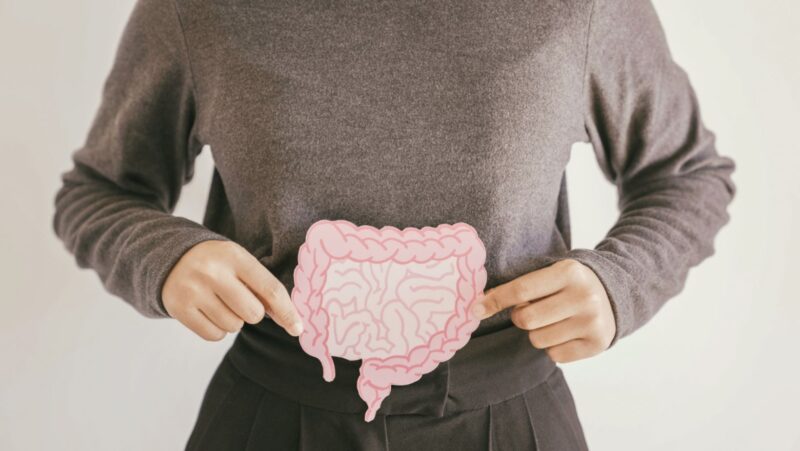
When it comes to anxiety therapy, there is no one-size-fits-all approach. Each individual is unique, and what works for one person may not work for another. That’s why it’s crucial to explore a variety of therapy modalities to find the one that resonates with you. From cognitive-behavioral therapy (CBT) to mindfulness-based stress reduction (MBSR), I’ll delve into the details of each modality, explaining how they work and the benefits they offer. With this comprehensive guide, you’ll be equipped with the knowledge to make an informed decision and embark on your journey towards anxiety relief. So, let’s dive in and discover the best anxiety therapy modalities that can help you regain control of your life.
The Importance of Finding the Right Therapy Modality
When it comes to managing anxiety, it’s crucial to find the right therapy modality that works best for you. Anxiety is not a one-size-fits-all condition, and different individuals may respond to different approaches. By exploring and trying out various therapy modalities, you can find the one that suits your needs and helps you effectively manage your anxiety symptoms.
Cognitive-Behavioral Therapy (CBT) is a widely recognized and evidence-based therapy modality for anxiety. It focuses on identifying and changing negative thought patterns and behaviors that contribute to anxiety. With CBT, you’ll learn practical skills and strategies to challenge and reframe negative thinking, as well as develop healthy coping mechanisms to address anxious thoughts and behaviors. This type of therapy has been shown to be effective in treating a range of anxiety disorders, including generalized anxiety disorder (GAD), panic disorder, social anxiety disorder, and post-traumatic stress disorder (PTSD).
Another therapy modality worth exploring is Mindfulness-Based Stress Reduction (MBSR). This approach combines mindfulness meditation, body awareness, and gentle movement practices to help individuals become more present and less reactive to anxious thoughts and feelings. By cultivating mindfulness, you can develop a greater sense of peace and calm, as well as gain the ability to observe and accept your anxiety without judgment. MBSR has been found to be beneficial for reducing anxiety symptoms and improving overall well-being.
Sometimes, finding the right therapy modality may require assistance from a trained professional. An online therapist can provide guidance and support in navigating the various therapy options available. Whether you’re looking for online anxiety therapy in Staten Island, NY, or online couples counseling in Charleston, SC, there are resources available to help you find the right therapist for your needs.
It’s important to note that if you’re experiencing severe anxiety or have underlying conditions such as depression, it’s crucial to seek professional help. Organizations like the Anxiety and Depression Association of America and reputable sources like Verywell Mind can provide further guidance and information on finding the right therapy modality. Or, if you live in South Carolina and anxiety is affecting your romantic relationships, you might benefit from online couples counseling Charleston SC
Cognitive-Behavioral Therapy (CBT)
When it comes to managing anxiety, Cognitive-Behavioral Therapy (CBT) is often considered one of the most effective therapy modalities. As an experienced therapist, I have seen firsthand the positive impact CBT can have on individuals struggling with anxiety.
CBT focuses on the connection between our thoughts, feelings, and behaviors. It aims to identify and change negative thought patterns and behaviors that contribute to anxiety. Through a collaborative process, the therapist helps individuals become more aware of their thoughts and how they influence their emotions and actions. By challenging and replacing negative thoughts with more balanced and realistic ones, clients can gradually reduce their anxiety.
One of the benefits of CBT is its structured and goal-oriented approach. It provides individuals with practical strategies and tools to cope with anxiety symptoms in real-life situations. Whether it’s dealing with panic attacks,addressing social anxiety, or managing obsessive-compulsive disorder (OCD), CBT offers customized techniques tailored to the individual’s specific needs.
Another advantage of CBT is its evidence-based nature. Extensive research has shown that CBT is highly effective in treating anxiety disorders, including post-traumatic stress disorder (PTSD) and depression. Organizations like the Anxiety and Depression Association of America and Verywell Mind recognize CBT as a frontline treatment for anxiety.
In today’s digital age, it’s worth mentioning that CBT is not limited to face-to-face therapy sessions. Online therapy has become increasingly popular and convenient, providing individuals with access to therapy from the comfort of their own homes. Whether you’re searching for an online anxiety therapy or an online therapist in Staten Island, NY CBT can be effectively delivered through virtual platforms.
It’s important to note that while CBT can be highly beneficial for many individuals, it may not work for everyone. Each person is unique, and it’s essential to find the therapy modality that resonates with you. For severe anxiety or underlying conditions, seeking professional help is crucial. Options like online couples counseling in Charleston SC can provide support not only for individuals but also for relationships affected by anxiety.
Mindfulness-Based Stress Reduction (MBSR)
When it comes to managing anxiety, Mindfulness-Based Stress Reduction (MBSR) is another powerful therapy modality that can be incredibly beneficial. Developed by Jon Kabat-Zinn in the late 1970s, MBSR combines mindfulness meditation, body awareness, and yoga to help individuals cope with stress and anxiety.
At its core, MBSR is all about being present in the moment and cultivating a non-judgmental awareness of our thoughts, feelings, and bodily sensations. By practicing mindfulness, we can learn to observe and accept our anxious thoughts and emotions without getting caught up in them. This shift in perspective can be transformative and provide an inner sense of calm and clarity.
Some key principles of MBSR include:
- Mindful meditation: This involves sitting or lying down in a comfortable position and focusing your attention on the present moment, often using your breath as an anchor. By bringing our attention back to the present whenever it wanders, we can break free from the cycle of anxious thoughts.
- Body scan: A body scan is a mindfulness practice that involves systematically scanning your body from head to toe, bringing attention and awareness to each area. This practice helps to develop body awareness and release tension and stress stored in the body.
- Yoga and mindful movement: MBSR incorporates gentle yoga poses and mindful movement to help develop a greater connection between the mind and body. These practices can help reduce muscle tension, improve flexibility, and promote overall well-being.
Research studies have shown that MBSR can significantly reduce anxiety levels and improve overall mental health. It has been recommended by organizations such as the Anxiety and Depression Association of America and Verywell Mind as an effective treatment for anxiety and stress-related disorders.
Other Effective Therapy Modalities for Anxiety
When it comes to managing anxiety, Cognitive-Behavioral Therapy (CBT and Mindfulness-Based Stress Reduction (MBSR) are widely recognized as effective approaches. However, there are other therapy modalities that can also be beneficial for individuals struggling with anxiety. What is somatic work? Somatic therapy focuses on the connection between the mind and body, using techniques like breathwork, movement, and body awareness to help regulate stress and anxiety. Let’s explore some of these additional options:
1. Acceptance and Commitment Therapy (ACT): ACT is a type of therapy that helps individuals accept their anxious thoughts and feelings, while also committing to actions that align with their values and goals. It focuses on developing psychological flexibility and reducing the impact of negative thoughts on daily life. ACT can be especially useful for individuals with chronic anxiety or those who have difficulty letting go of their anxious thoughts.
2. Dialectical Behavior Therapy (DBT): Originally developed to treat individuals with borderline personality disorder, DBT has proven to be effective for anxiety as well. It combines elements of CBT with mindfulness techniques and emphasizes the importance of accepting and regulating emotions. DBT equips individuals with practical skills to manage distressing emotions and improve their interpersonal relationships.
3. Eye Movement Desensitization and Reprocessing (EMDR): EMDR is a therapy modality primarily used to treat Post-Traumatic Stress Disorder (PTSD), but it has shown promise in reducing anxiety symptoms as well. This therapy involves recalling distressing memories while engaging in bilateral stimulation, such as eye movements or tapping. EMDR helps individuals reprocess traumatic experiences and alleviate associated anxiety.

4. Exposure and Response Prevention (ERP): ERP is a form of therapy commonly used to treat anxiety disorders, particularly Obsessive-Compulsive Disorder (OCD). It involves exposing individuals to their fears and preventing the usual behavioral or cognitive responses that reinforce anxiety. Gradual and repeated exposure allows individuals to confront their fears in a controlled and safe environment, leading to reduced anxiety over time.
While these therapy modalities can be effective, it’s important to note that not all approaches work for everyone. Seek guidance from a qualified anxiety therapist or psychologist to determine the best treatment option for your unique needs. Online therapy platforms, such as Verywell Mind, offer access to experienced professionals who can provide evidence-based treatment remotely.













